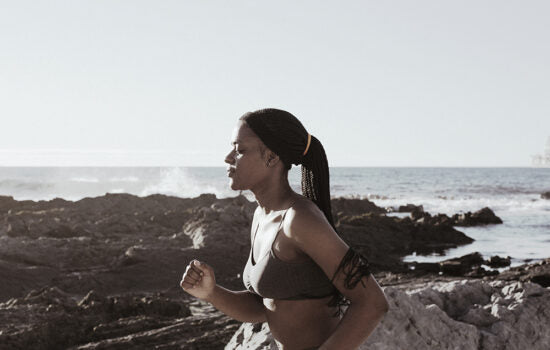
3 Tips to Prevent Back Acne and Other Skin Conditions When You Sweat
Clean beauty industry maven Mary Futher founded kaia naturals® after spending 20 years working for global beauty companies. Mary now shares her weekly content series, delivering a quick fix, home remedy, or clean beauty product suggestion for a variety of human discomforts that some may find too embarrassing to discuss.
I was having a discussion with my team at kaia naturals recently and one of the girls mentioned that she gets very itchy whenever she exercises, usually on her arms where she has eczema. She did not realize that the itchiness was because the sweat was drying on her skin. This is one of the many issues that occurs when you leave sweat on your skin.
Similarly if you don’t shower after spending a day outside hot weather or after sweating in your sleep you could be inviting bacteria that is detrimental to your skin. The build up of dirt, oil, and bacteria can cause back acne and other unwanted skin conditions. Dealing with these skin conditions can be aggravating and can make us feel insecure about our bodies. This is why, I am here tell you what sweat does to your skin and how to prevent these skin conditions from developing.
What’s In Sweat?
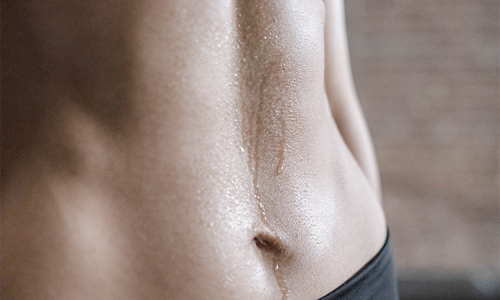
Sweat is 99% water, and the rest is sodium chloride, lactic acid and urea. Before I talk about the negative effects of sweat, I want to clarify that sweating is good for you. It’s when it is left to dry on your skin that it attracts bacteria that can cause redness, acne flare-ups, and clogged pores.
What Skin Conditions Can Sweat Cause?
Sweat is harmless for the most part, but you need to know that when you don’t wash off after exercising or being outside in the sun, these skin conditions can arise:
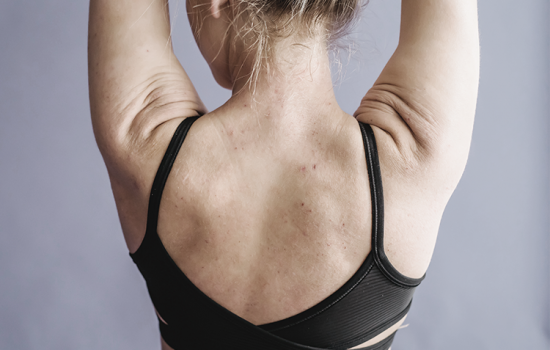
Back Acne
No one wants to talk about this and because it can be embarrassing, but sweat can produce acne problems, particularly on your back. When sweat is mixed with bacteria such as staphylococcus aureus and yeast infections such as pityrosporum, they cause inflamed follicles that appear as acne-like lesions on your face and torso.
Heat Rashes
When you don’t shower within two or three hours, you are more likely to contract bacterial infections on your skin. Heat rashes are the most common since they occur whenever bacteria and sweat come into contact on the body.
Eczema
This is a more serious skin condition that is not caused by sweat per se, but it does aggravate it. If you have eczema, exercise can make it worse because when you sweat, the moisture evaporates to cool you down and causes your skin to dry out. This leaves a salty residue that irritates it further. It can even make you feel itchy during your workout.
Yeast Infections
Yes, I am going there. When you sweat, sensitive areas such as your breasts, groin, and underarms are more likely to come into contact with bacteria since they have folds. They are the perfect condition for harboring candida yeasts, which can develop into a yeast infection unfortunately.
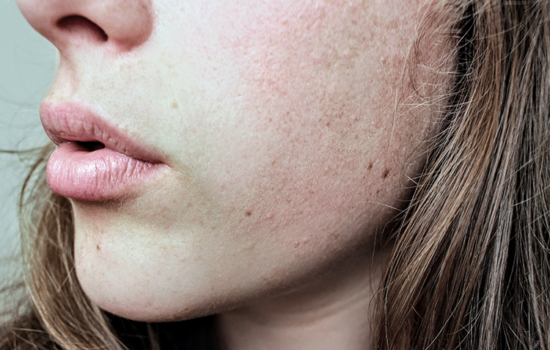
Join the community
Subscribe to our blog, The Little Book Of Human Discomforts, to stay in the know on taboo human body topics that some may find too embarrassing to discuss.
Tips on How to Guard Yourself Against Sweat
Don’t worry, you don’t have to give up your midday workout or picnicking outside because of the effects of sweat on the skin. I have gathered some simple, quick, and easy tips to help you freshen up and remove the salt and bacteria from your skin.
1) Shower
If you have time, shower immediately after sweating. This will prevent the sweat from lingering and drying out the skin. If you find your underarms are extra smelly after working out or coming home from spending time in the heat use an anti-bacterial soap like the underarm bar to eliminate the odor causing bacteria. If you shower at night using the underarm bar will help reduce armpit odor in the morning.
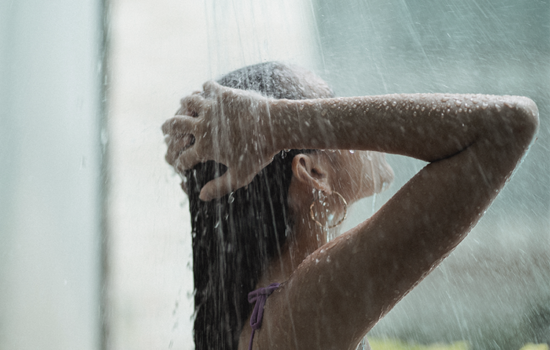
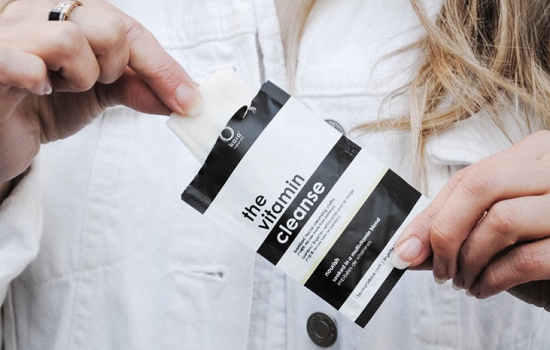
2) Use Cleansing Clothes
The salt and acidity in perspiration can dry out your skin, so your best bet is to always keep a towel on you or use a cleansing clothing so that you can wipe off the sweat as you work out or while you’re on the go. A cleansing cloth like the, the vitamin cleanse is great for this and they’re super convenient to carry around. Don’t use your shirt to wipe away sweat because you are still transferring sweat to your skin.
3) Wear the Right Clothing
Your outfits and workout gear needs to be light and breathable so sweat can evaporate off your body. Consider the following options:
- Cotton is ideal since it is the softest on your skin.
- Get clothes one size larger so that they don’t rub against your skin.
- Wear layers so that you can strip them off as you warm up so you don’t overheat.
- If you’re working out at home consider wearing your clothes inside out so that the seams don’t rub against you.
- Wear sweat wicking sports clothing. It will take trial and error to get it right.
- Always wash your clothes after your wear them. Don’t let them stink and fester in your room or your gym only to put them back on for the next day.

For more information on how sweat affects your body subscribe to our blog to read more about solutions for seemingly embarrassing skin issues. Leave us a comment down below and share how sweat has affected your lifestyle.




